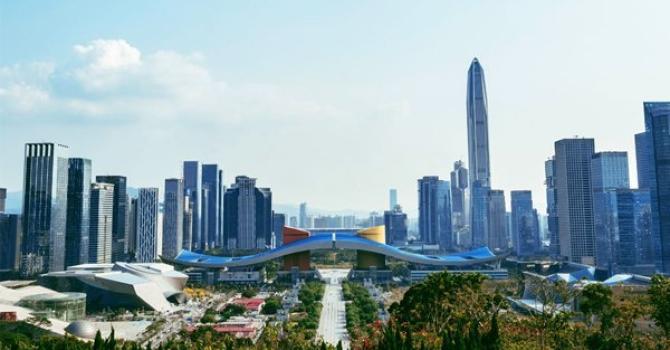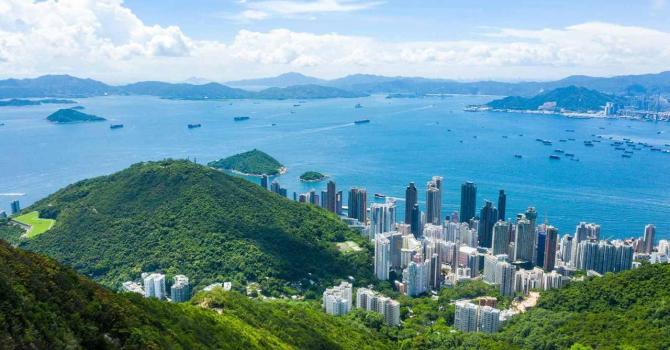China Daily - City can play lead role in maritime decarbonization
The John Lee Ka-chiu administration, which will take over on July 1, will include a revamped transport and logistics bureau to oversee local and cross-border transport policies in order to enhance Hong Kong’s status as an international maritime center and promote the construction of a “smart port”, and an expanded environment and ecology bureau to lead on climate change policies.
This is timely because the global maritime industry is looking at fast-paced decarbonization in response to the need to urgently mitigate global climate change. Hong Kong should leverage its unique advantages as an international shipping center to promote a low-carbon transformation of the maritime industry. It would enhance Hong Kong’s development in international shipping and green finance, and its role as a bridge between China and the rest of the world.
The International Maritime Organization, which governs international shipping, is currently targeting a 50 percent cut in greenhouse gas emissions from the global fleet by 2050 compared with 2008 levels, which would follow a 40 percent reduction in carbon intensity by 2030, but there will continue to be pressure to adopt a target of a 100 percent cut by midcentury.
These goals require reforming ships’ energy systems and introducing alternative fuels. Research shows the cumulative investment needed between 2030 and 2050 to halve shipping’s emissions amounts to approximately $1 trillion to $1.4 trillion, or an average of $50 to $70 billion annually for 20 years. If shipping were to fully decarbonize by 2050, this would require further investments of some $400 billion over 20 years, bringing the total to $1.4 trillion to $1.9 trillion.
In response to this trillion-dollar industrial transformation, the United Kingdom and Singapore have promulgated long-term strategic plans to develop low-carbon maritime transportation, hoping to seize the opportunity of industry transition and establish a new national competitive advantage.
The low-carbon transformation of the maritime industry involves the coordinated development of two major categories of business: One is high-end maritime services, including fleet management and shipping financing; and the other is shipbuilding and alternative fuel supplies.
The Guangdong-Hong Kong-Macao Greater Bay Area is competitive in international maritime services, shipbuilding and fuel supplies; and has the potential to develop a low-carbon maritime industry cluster.
The GBA already has a solid foundation in the relevant areas; its maritime business already radiates globally; and its fleet management and port development are among the world’s best.
The GBA is home to three major international ports — Shenzhen, Guangzhou and Hong Kong — with solid international connections. Besides, the community of shipowners and relevant service providers is of substantial size and global influence.
At the same time, the GBA’s green finance market is developing rapidly. With a mature international maritime service system, Hong Kong has always been a gathering place for international stakeholders. And as one of the world’s leading international financial centers, Hong Kong offers comprehensive financial services and products.
The GBA can provide a full spectrum of services from shipbuilding too. There are world-class shipyards, including in Nansha and Whampoa Wenchong. The shipbuilding services cover major vessel types, such as bulk carriers, oil tankers and container ships, as well as new vessel types such as liquefied natural gas vessels and electric passenger ships, as well as key components such as marine diesel engines and electric propulsion systems.
In terms of alternative fuel, Foshan, Guangzhou and Shenzhen have the enabling policies, infrastructure and complete industrial chains for constructing the supply chain of alternative fuels, such as hydrogen.
As the core city of the GBA, Hong Kong has unique strengths in working with international stakeholders, providing international maritime services and green financial services.
Under the advantages offered by the “one country, two systems” principle, Hong Kong is an effective two-way gateway connecting China with the global shipping market.
In developing a low-carbon maritime transport industry cluster, the Hong Kong Special Administrative Region government should proactively engage with maritime stakeholders, particularly the locally based stakeholders, to better understand the policy needs of maritime decarbonization.
Hong Kong should play a leading role in the business development of high-end maritime services, including green shipping finance in the GBA.
The Hong Kong SAR government should work with other bay area cities to formulate efficient policies to attract low-carbon maritime investment, increase its own understanding of the international trend of maritime shipping and its importance to China as a whole, assist the nation in formulating a low-carbon transformation strategy for maritime transportation, use the global low-carbon maritime industry chain, and promote global maritime decarbonization.
Grasping this global opportunity and leveraging its own industrial advantages in developing low-carbon shipping, the GBA should start to formulate a long-term vision and strategic plans for developing its shipping industry.
The GBA should also carry out demonstration projects to explore the policy needs, cooperation mechanisms and long-term technical paths of maritime decarbonization to propose solutions for decarbonizing maritime transportation based on our own practice.
Regarding demonstration projects, the GBA could develop green routes between ports in the region to explore technical paths and cooperation mechanisms for maritime decarbonization; and it could develop green corridors connecting other port clusters in Asia or along the Belt and Road.
The global maritime industry is undergoing a revolutionary low-carbon transformation and will bring new opportunities for the development of the GBA.
As an international shipping hub, Hong Kong has the advantage of promoting the development of green and smart ports, and this policy direction will help Hong Kong lead the international maritime industry to formulate long-term decarbonization measures, while promoting the low-carbon development of the port cluster regionally for mutual benefit and win-win results.
Zhang Yiqi was a research scholar at the Hong Kong University of Science and Technology, and a past winner of the Global Maritime Forum essay competition.
This article was published on China Daily: https://www.chinadailyhk.com/article/274902#City-can-play-lead-role-in-maritime-decarbonization



